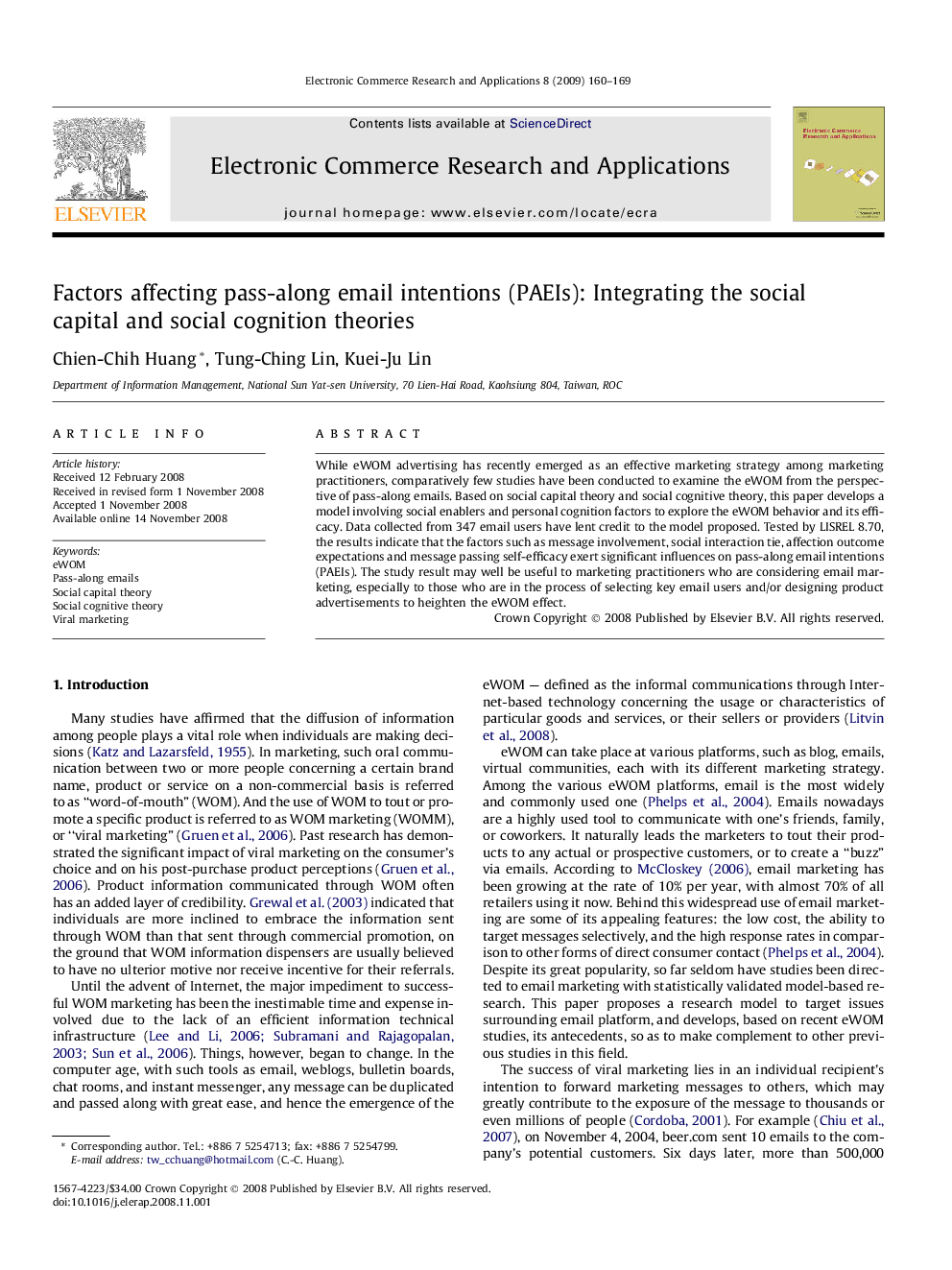| Article ID | Journal | Published Year | Pages | File Type |
|---|---|---|---|---|
| 380054 | Electronic Commerce Research and Applications | 2009 | 10 Pages |
While eWOM advertising has recently emerged as an effective marketing strategy among marketing practitioners, comparatively few studies have been conducted to examine the eWOM from the perspective of pass-along emails. Based on social capital theory and social cognitive theory, this paper develops a model involving social enablers and personal cognition factors to explore the eWOM behavior and its efficacy. Data collected from 347 email users have lent credit to the model proposed. Tested by LISREL 8.70, the results indicate that the factors such as message involvement, social interaction tie, affection outcome expectations and message passing self-efficacy exert significant influences on pass-along email intentions (PAEIs). The study result may well be useful to marketing practitioners who are considering email marketing, especially to those who are in the process of selecting key email users and/or designing product advertisements to heighten the eWOM effect.
